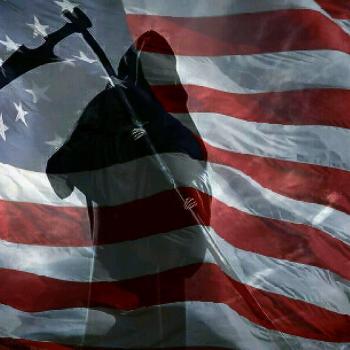In the Chanukah story, the Maccabean revolt kicks off when Mattathias, the Maccabee patriarch, kills another Jew who is about to bow down at a Greek altar. Mattathias, the Book of Maccabees tells us, was acting in the tradition of the biblical priest Pinchas, who had killed a Jew for consorting with a Midianite woman and joining a cult of Baal. Mattathias then exhorted "all who are zealous for the law and faithful to the Covenant, follow me."
Those words eerily parallel Moses' upon his return from Mount Sinai. After the golden calf incident, Moses drew a line in the sand, saying "Whoever is on God's side, join me." When the Levites stepped up, Moses ordered them to draw their swords and "kill brother, friend and neighbor." Today, Moses' and Pinchas' actions are used to justify Jewish extremism. Pinchas was cited by Yigal Amir, Yitzhak Rabin's assassin. Moses' words adorn billboards sponsored by Israel's powerful extreme-right Shas Party.
Such extremism is starkly at odds with pluralism and rational debate. It says you're either with us or you're against us, or rather, you're either with God, or an apostate. That fundamentalist reasoning animated the Maccabees' fight for religious freedom, but it also justified their reign of violence and repression. When we celebrate Chanukah without thinking about what those who followed Mattathias wrought, or without asking when and how the Maccabees lost the moral high ground, we are missing an opportunity to probe our values as Jews and as Americans c. 2010.
Peter Beinart's recent article, "The Failure of the American Jewish Establishment," raised this question in terms of the relationship between American Jews and Israel. As Israel has grown more powerful in the half-century-plus since its War of Independence, its moral position (and that of its defenders) has become fraught and complicated. Yet Israel's coalition government hinges on hard-liners from parties like Shas, who display little commitment to ideas like equal citizenship and religious tolerance, let alone a two-state solution. American Jewish organizations like AIPAC, Beinart argues, have, in their unequivocal support for Israeli government policy, ignored a growing tension between liberal democratic values and rising Israeli extremism.
I can confirm that the yoke of extremism is turning off droves of young American Jews. I went to an AIPAC student leaders conference as a freshman in college. I watched a law student from Albany unabashedly advocate blocking U.S. aid to the Palestinians before a packed ballroom and felt appalled and marginalized. More broadly, though, a "line in the sand" on Israel is also feeding an irrational mistrust of moderate, pro-Israel groups like J-Street.
But our inability coherently to cope with extremism extends beyond the Israel-America relationship.
Just ask George Soros, the recent subject of a two-day Glenn Beck-sposé entitled, "the Puppet Master." Drawing extensively on anti-Semitic tropes worthy of Henry Ford's the International Jew, Beck cast Soros as the power behind the dark forces who are the focus of his program. Beck offensively twisted Soros' role in supporting democracy movements in Eastern Europe into a tale of world domination, (inadvertently) echoing Soros-themed anti-Semitic propaganda created by the Iranian Security Service.




